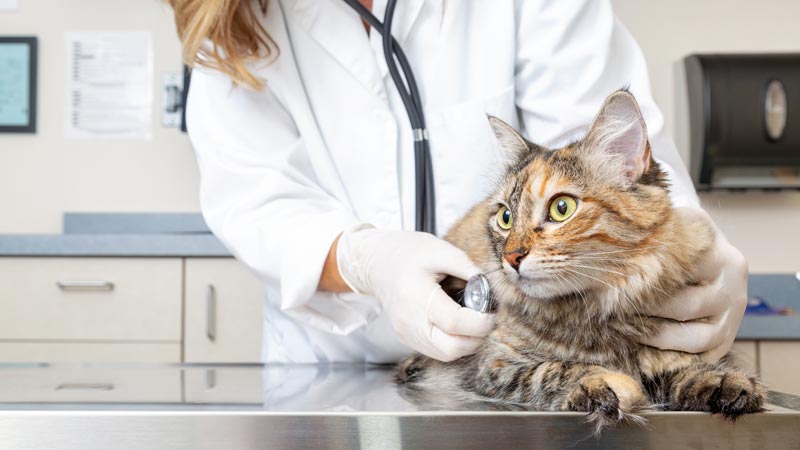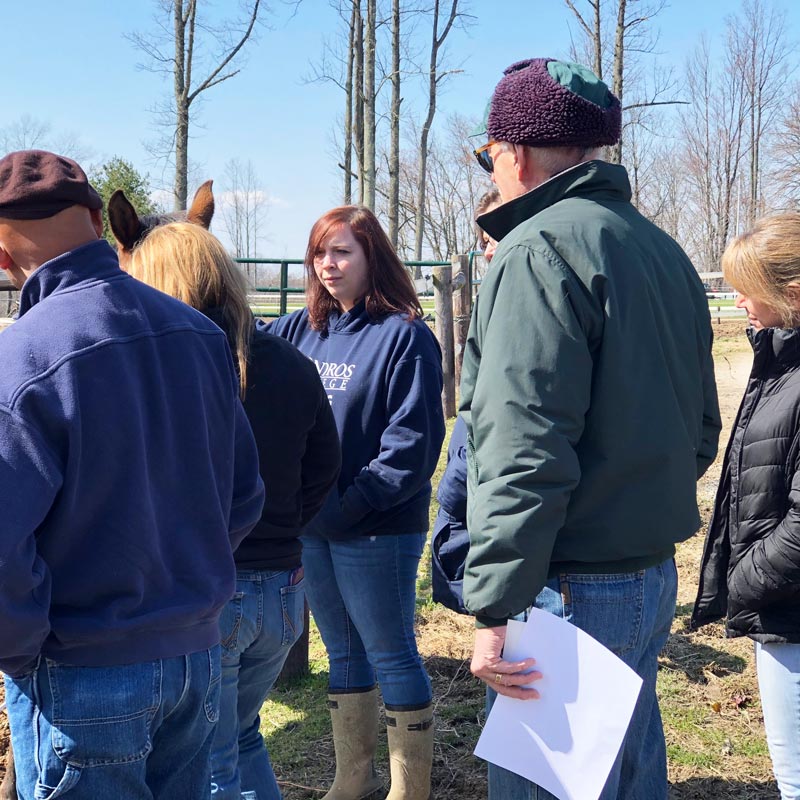Vaccinations - View from the Vet
How does your pet live as a member of your family?

View from The Vet: Vaccinations
BY: DAWN TRUESDALE, DVM
VACCINATIONS
Because family pets, specifically cats and dogs, are dearly loved, I am often asked for guidance as to the “best” approach to vaccinating to help ensure good health long-term. My advice is based on my belief that vaccinations are invaluable components of a healthy lifestyle – the key word “lifestyle” being the most important factor in determining what vaccinations your pet needs. A popular phrase today, “lifestyle” for a pet boils down to simply:
How do they live as a member of your family?
Some questions I always ask my pet parents include:
Are they an indoor and/or outdoor pet? Is their physical activity level high or low? Is their temperament shy or out-going, aggressive or docile? How much time do they spend with other pets and people, in what circumstances and doing what activities? Travel? Any known diseases? Will they possibly be exposed to other pets or animals outside the home, perhaps some with illnesses? All of these questions are useful for determining the appropriate mix of vaccinations for your unique pet, be it a cat or dog.
CATS
Cats are generally very tolerant of vaccinations. First and foremost I encourage a rabies inoculation be given. Available as an injectable version, I recommend the one (1) year duration, which has proven to be less inflammatory at the injection site. This is caution on my part, as it avoids an inciting factor for possible tumor formation in the small subset of cats that prove to be tumor susceptible at injection sites. I normally reserve the alternative three (3) year option for those kitties that are not easy to get to the clinic annually.
In addition to a rabies vaccination, my other recommended vaccinations may include:
1. FELV (leukemia) – for outdoor cats or those exposed to outdoor cats
2. FIV (feline immunodeficiency virus)– ideal for those cats that are either outdoor or indoor-outdoor in habit, historically are combative, and may fight with other cats they encounter. I also highly recommend a microchip, as a found lost pet can test positive post-vaccination (false positive) endangering its return
3. FDRC or FVRCP (feline distemper, herpes) – permits two delivery options: intra-nasal or injectable. The injectable is preferred if your kitty has a tendency toward sneezing or has upper respiratory issues. Its duration is three (3) years. By comparison, administering the vaccine intra-nasally shortens its duration to 9-12 months, but also eliminates any concern for injection site sensitivity. However, studies have shown that there can be more mild side effects associated with the intra-nasal form.
DOGS
For most dogs, rabies (injectable) and DHPP (canine distemper) are must-have vaccinations. In addition, I may recommend
1. Leptospirosis (protects from transmission of disease from wild animals)
2. Bordetella (kennel cough) – this is an optional choice, dependent on the frequency of encounters with dogs from outside the family
3. Influenza/Flu – again, an optional choice, dependent, as Bordetella is, upon your dog’s circle of doggie friends
4. Lyme (lyme disease) – transmitted via ticks, the Lyme vaccination should be considered for outdoors dogs who participate in hiking, hunting, camping or who visit the East Coast, spending time in outdoor activities. Of course, regularly scheduled doses of flea and tick medicine are the first line of defense against tick-borne disease.
SIDE EFFECTS AND ADVERSE REACTIONS
I always caution my pet parents that there may be a brief period of lethargy or “off” behavior for 12-24 hours post vaccinations. If they observe any vomiting, diarrhea, or trouble breathing – get to the vet! If site swelling is noticed, this is not usually an emergency but a temporary after-effect of an injection. On the other hand, any observable hives, facial swelling, heavy facial flushes or bright red ears on a dog is an emergency – see your vet asap!
Finally, I hope that this brief discussion has been a helpful reminder that your beloved pets need regular on-going health care, starting with their vaccinations. Don’t delay – talk to your vet about their lifestyle soon, so you can make sure that all bases of vulnerability are covered.
_____________________
Dawn Truesdale is a practicing vet affiliated with Linworth Animal Hospital in Worthington, Ohio. A graduate of Ohio State University College of Veterinary Medicine, Dawn has sixteen (16) years experience in emergency medicine and general practice. She is an avowed animal advocate and board member of the Animal Protection Network (APN).
.
Want to help?
Join us at our upcoming
events to make a difference
in central Ohio!

Learn how, then teach others about how TNVR benefits cat colonies and the communities they live in.

Help us provide seminars to educate the public on topics that promote animal rights, health and safety.

Spread the word of APN at community festivals. It's a fun way to help the Animal Protection Network grow to save local animals in need!
Volunteer Or Join Our Mailing List!
We will get back to you as soon as possible
Please try again later




